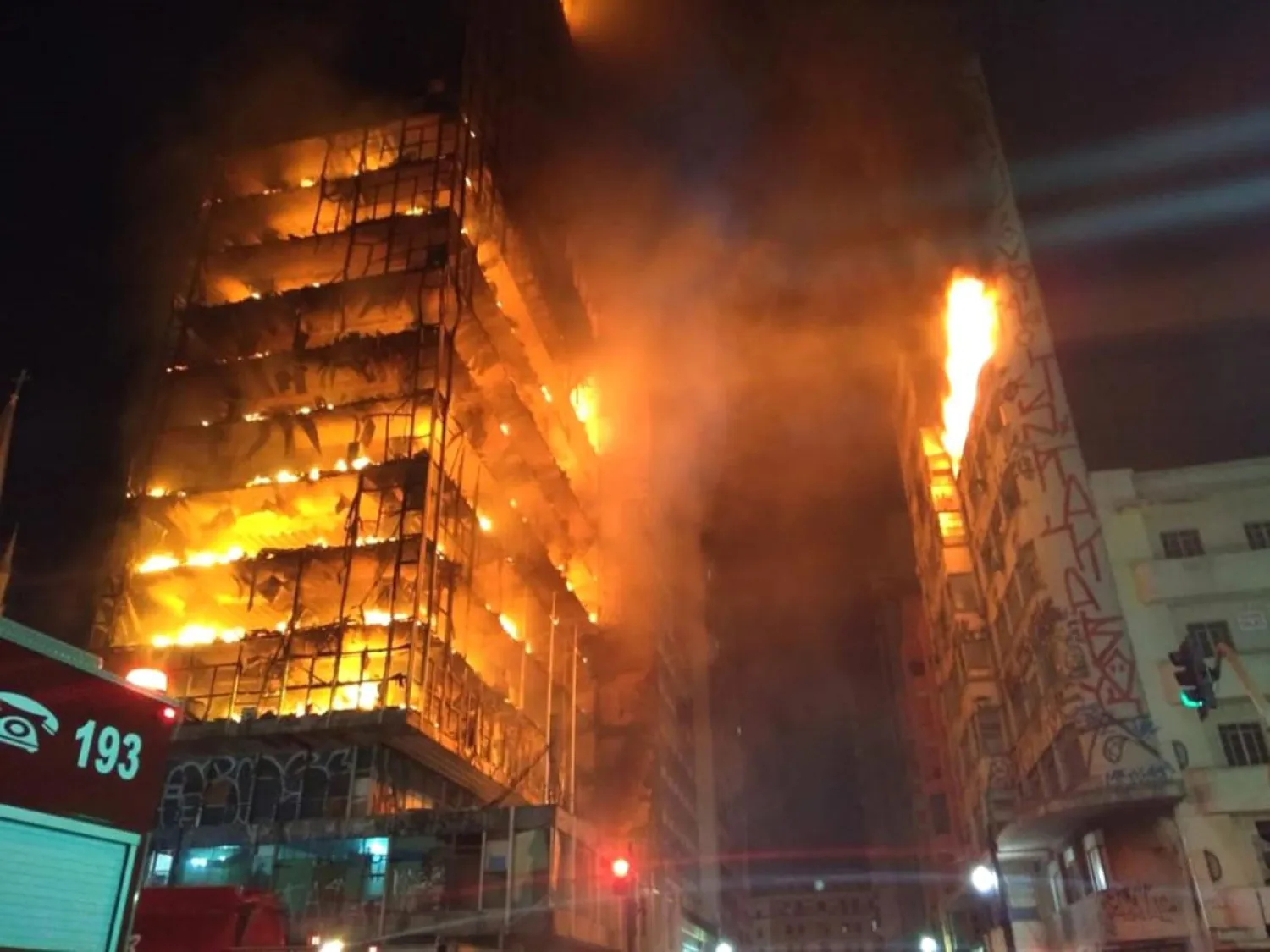At least one person was killed on Tuesday when an abandoned building occupied by squatters collapsed in Sao Paulo, Brazil.
The building, a former headquarters of the federal police, caught fire around 1:30 a.m. local time.
Firefighters set up a perimeter and worked to evacuate people.
A few hours later, as flames engulfed the 26-storey building, it collapsed. Globo TV, which was covering the fire, captured the destruction. Images showed the floors falling on themselves like dominoes and chunks of fiery debris crashing into neighboring buildings and surrounding streets.
Television images showed the horrifying moment when a fireman tried to reach a man clinging to the building as it went down more than one hour after the fire started.
Firemen continued to fight the fire that spread to an adjacent building that had been evacuated and was not in danger of collapsing, Sao Paulo Fire Brigade Lieutenant André Elias told Globo.
Firefighters warned there could be more casualties.
Romulo de Souza, 49, said he was part of a squatter occupation in the neighboring building. He said that when the fire began on the fourth floor of the former police headquarters, families began evacuating.
"Happily the majority got out," he said.
De Souza said that residents believed the fire could have been started by a gas leak. Firefighters said the cause is yet unknown.
Clearing debris and accounting for people who had been in the building could likely take days. Three hours after the collapse, smoldering debris continued to emit smoke.
The building had been occupied irregularly seven years ago and some 150 people lived in the lower 10 floors, Globo reported.
The fire and collapse are sure to put a spotlight on occupations in Sao Paulo, South America's largest city.
Several dozen buildings have been occupied in downtown by highly organized fair-housing groups that take over and then fight for ownership. Many such dwellings are run like regular apartment buildings, with doormen and residents paying monthly fees and utility bills. Others are less established and more precarious.
Former Sao Paulo mayor Joao Doria, who recently stepped down to run for governor, cracked down on squatter communities as a plan to revitalize the downtown.
Doria argued the downtown should showcase Sao Paulo, the engine of Brazil's economy and one of the hemisphere's most important financial centers. Fair-housing activists, on the other hand, argue that the area could offer affordable housing to tens of thousands of people.









